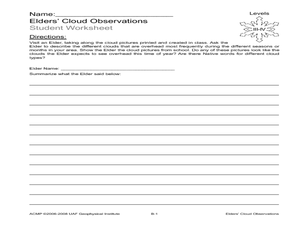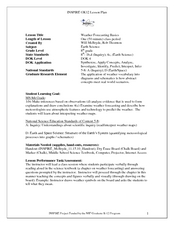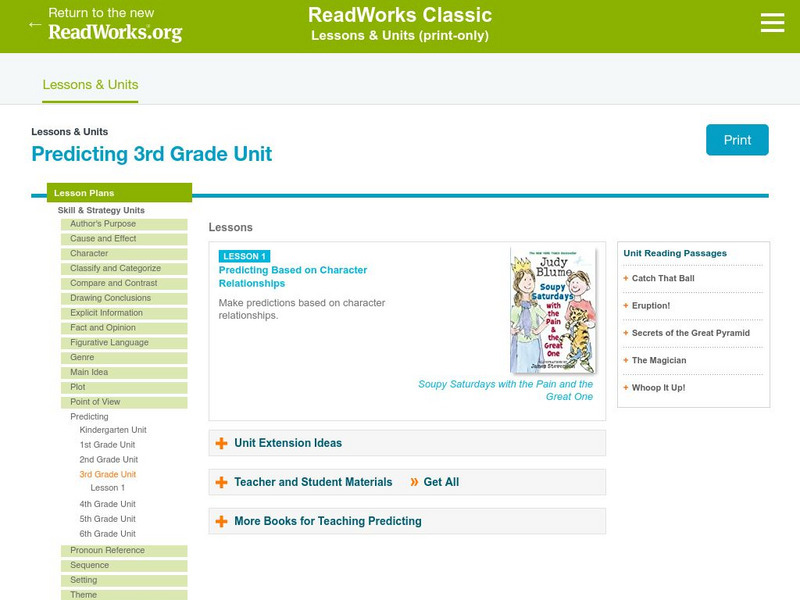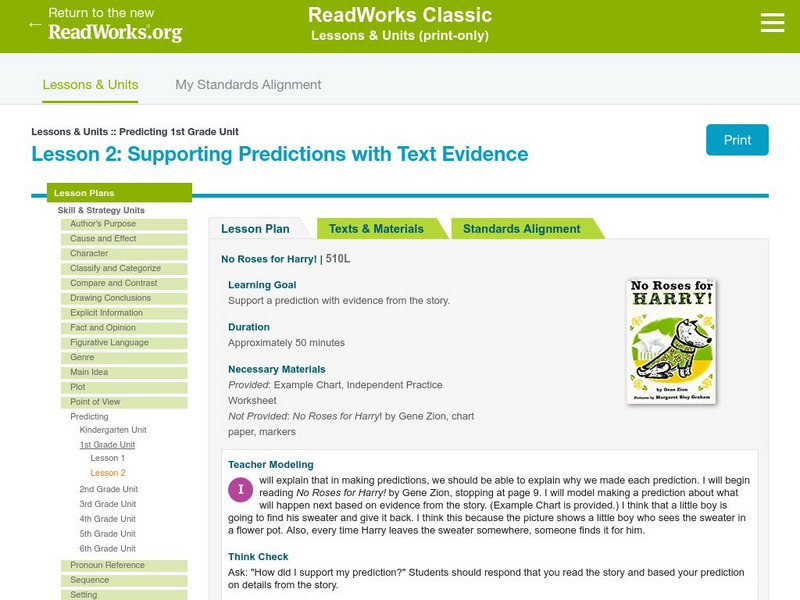Curated OER
Social Studies: How Did Native Americans Live?
Fifth graders examine Edward Curtis' photographs and Robert Griffing's paintings to analyze Native American culture. They present research information on specific tribes, using the photos and paintings to uncover information about the...
Curated OER
Statistical Accuracy and Reliability
Ninth graders assess the accuracy and reliability of current survey data and how it is represented. They design a survey, collect data, and use technology to analyze the data and present the results. Students examine scatter plots and...
Curated OER
The Death of the Ball Turret Gunner
Pupils read and analyze a poem about a speaker's posthumous view of war, assess the purpose of an author's note and evaluate the effect of the point of view on the reader's response. They work in groups to discuss and analyze the poem.
Curated OER
Creating The Virtual Model
Students engage in a lesson that is about the concept of earthquake design. The lesson includes the integration of technology and how it can be used to create buildings and structures for withstanding an earthquake. Students also define...
Curated OER
Runaway Slaves, An American Experience
Sixth graders explore, analyze and study how one's personal experiences impact one's perspective and actions. They interpret ideas and events of slavery from the different perspectives of an abolitionist, slave owner, United States...
Curated OER
Mendellian Genetics
Young scholars describe the inheritance patterns other than simple dominance. They are taught how Mendel's principles apply to all organisms. Students review the use of Punnett Squares. They are taught the principles of probability...
Curated OER
Laetoli Trackway Puzzle
Students try to reach a "best explanation" after viewing diagrams. In this trackway lesson students complete several worksheets, make observations and hypothesize.
Curated OER
Elder's Cloud Observations
Learners study cloud types and Native language terms for clouds and cloud types. In this cloud types lesson, students listen to a Native American speaker discuss clouds and the words used to describe clouds. Learners complete a worksheet...
Curated OER
Weather Forecasting Basics
Eighth graders analyze weather diagrams and weather maps. In this earth science lesson, 8th graders explain why it is important to know the weather. They complete a handout at the end of the lesson.
Reading Rockets
Reading Rockets: Strategy Guide: Teaching How Scientists Make Inferences [Pdf]
This guide includes an introductory section about visual evidence, a general overview of how to use this strategy with many science texts, and a plan for teaching how to use visual evidence to make inferences with the Seeds of...
Better Lesson
Better Lesson: Using Word and Picture Clues to Make an Inference
First graders will use text evidence to make inferences about word and word phrase meanings in a text. Word and picture clues will be used to help students form inferences.
Better Lesson
Better Lesson: Introduction to Making Predictions and Inferences
First graders will engage in a shared reading of "Mr. C's Dinner" so that we can build a foundation for understanding what it takes to make good predictions and inferences.
Other
Siu Edwardsville: Professional Development Center: Lesson Plan: Inference [Pdf]
Lesson teaching the use of word selection, context, structure, and specific references in making inferences within non-fiction texts.
Better Lesson
Better Lesson: What the Heck Is That? Inferring the Purpose of an Object
In this lesson, 5th graders use their prior knowledge and inference skills to determine uses of unfamiliar objects. They participate in group discussions and analyze the key information they have in order to reach conclusions.
PBS
Pbs Teachers: Dead Men's Tales: Inferring Height From Bone Length
Explore the work of forensic scientists by inferring an individual's height from the length of certain long bones. Create bone/height relation charts and measure length using metric units. This activity was created to be used with the...
TES Global
Tes: Coraline 5 Reading Assessment
[Free Registration/Login Required] This lesson plan provides a way to assess students' understanding of inferences about the traits of characters in the Neil Gaiman's novel Coraline.
Read Works
Read Works: Predicting 3rd Grade Unit
[Free Registration/Login Required] This is a lesson plan designed to teach students to make predictions based on relationships between characters. The lesson plan is based on the book Soupy Saturdays with the Pain and the Great One by...
Read Works
Read Works: Predicting 1st Grade Unit
[Free Registration/Login Required] A two-lesson unit designed to teach students to make predictions and support them with details from the text. Lessons are based on the books Wemberly Worried by Kevin Henkes and No Roses for Harry! by...
Other
The Critical Thinking Consortium: A Teacher's Guide to the Gardener [Pdf]
The Gardener by Sarah Stewart won the Caldecott Honor in 1998. It centres around a set of letters about a young girl who moved from the countryside to the city. In the lessons in this teaching guide, students must make inferences from...
University of Maryland
Voices of Democracy: John Fitzgerald Kennedy, "Inaugural Address" January 1961
John F. Kennedy's inaugural speech is one of the most famous speeches in American history. Teachers can use this activity to teach Language Arts standards, as well as Social Studies standards. This lesson plan includes pre-reading ideas,...
Read Works
Read Works: 1st Grade Unit: Supporting Predictions
[Free Registration/Login Required] A lesson utilizing the book No Roses for Harry! by Gene Zionin in which students make a prediction and then support it with details from the text. Ideas for direct teaching, guided practice, and...
Read Works
Read Works: Grade 1: Three Lesson Unit: Character: Actions, Feelings, Looks
[Free Registration/Login Required] A series of three lesson plans, based on David Shannon's books No, David!, David Gets in Trouble, and David Goes to School. Students learn how to utilize text and picture clues to determine and describe...
Read Works
Read Works: Drawing Conclusions Kindergarten Unit: Short Story
[Free Registration/Login Required] A lesson plan teaching students to make conclusions based on a sentences and short texts. Students use textual cues to explain how the conclusions were reached. Ideas for direct teaching, guided...
National Endowment for the Humanities
Neh: Edsit Ement:narrative and Persona in the Poetry of Robert Frost
Using Frost's famous poem, "Stopping by the Woods on a Snowy Evening" as an example of narrative poetry, students explore the artistry and significance of the narrative poem. In addition, this lesson plan provides suggestions for writing...
Other popular searches
- Teaching Inference Skills
- Teaching Inference Reading
- Teaching Inference Implicit
- Teaching Inference 2nd
- Teaching Inference +Reading











![Reading Rockets: Strategy Guide: Teaching How Scientists Make Inferences [Pdf] Lesson Plan Reading Rockets: Strategy Guide: Teaching How Scientists Make Inferences [Pdf] Lesson Plan](https://d15y2dacu3jp90.cloudfront.net/images/attachment_defaults/resource/large/FPO-knovation.png)











